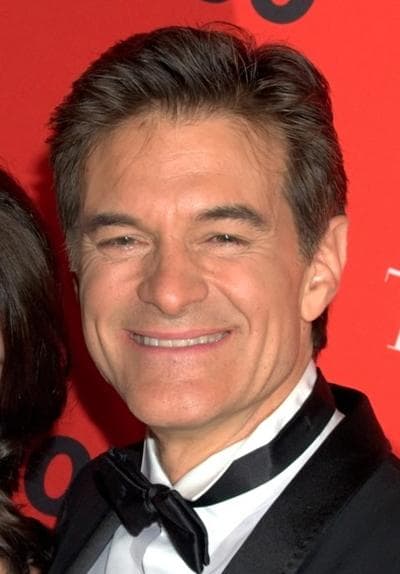Advertisement
Taking On Dr. Oz: 'Does He Do More Harm Than Good?'

I suppose it was a little signal of things to come when The New Yorker ran a hilarious cartoon last May: A patient sits shirtless on an exam table, as his doctor enters the room; on the wall, a sign proclaims, "Thank you for not mentioning Dr. Oz."
Now comes the full treatment: A splendid, skeptical article by New Yorker staff writer Michael Specter titled "The Operator" and subtitled "Is the most trusted doctor in America doing more harm than good?" It offers a welcome contrast to a friendlier 2010 profile of the Dr. Oz medical-entertainment industry in The New York Times magazine.
Anyone who's watched even a few minutes of Dr. Oz faces this odd problem: Some of what he says clearly qualifies as solid medical information. And some of what he says is hard to describe as anything other than...well...junk. I once happened upon a segment in which he touted facial exercises as healthful, with utter confidence. I made sure never to watch another minute. And a mammogram technician once kindly distracted me from my procedure by regaling me with the trouble that Dr. Oz caused when he suggested that women might want to wear special shields to protect their thyroids during their mammograms. It disturbed her service's work, she said, to the point that a staff doctor felt compelled to write a refutation. Readers, especially health care professionals, have you ever faced anything similar from patients influenced by Dr. Oz? Please do share in the comments below.
Read the full New Yorker story here. It includes this:
“The Dr. Oz Show” frequently focusses on essential health issues: the proper ways to eat, relax, exercise, and sleep, and how to maintain a healthy heart. Much of the advice Oz offers is sensible, and is rooted solidly in scientific literature. That is why the rest of what he does is so hard to understand. Oz is an experienced surgeon, yet almost daily he employs words that serious scientists shun, like “startling,” “breakthrough,” “radical,” “revolutionary,” and “miracle.” There are miracle drinks and miracle meal plans and miracles to stop aging and miracles to fight fat...
In each of those instances, and in many others, Oz has been criticized by scientists for relying on flimsy or incomplete data, distorting the results, and wielding his vast influence in ways that threaten the health of anyone who watches the show. Last year, almost as soon as that G.M.O. report was published, in France, it was thoroughly discredited by scores of researchers on both sides of the Atlantic.
This program aired on January 28, 2013. The audio for this program is not available.
